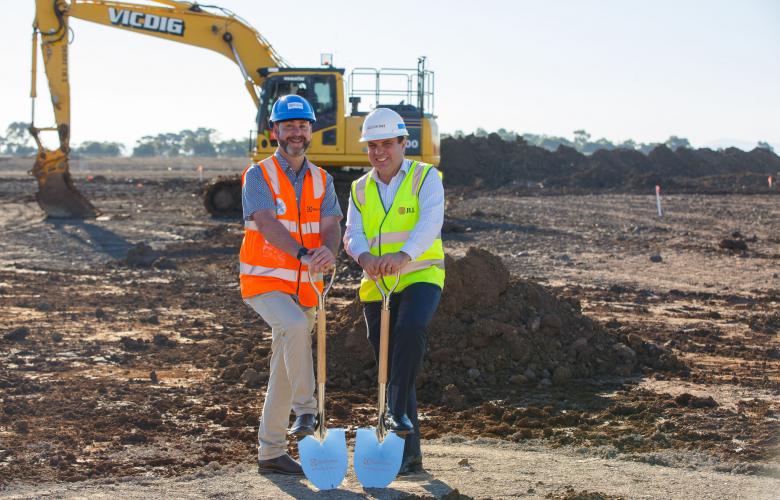JLL’s supply chain and consulting services continues to strengthen as industrial demand skyrockets
Contact
JLL’s supply chain and consulting services continues to strengthen as industrial demand skyrockets
JLL appoints Allan Frydman to the role of Head of Supply Chain & Logistics - Australia.
Global property services firm has appointed Allan Frydman to the role of Head of Supply Chain & Logistics focusing on Australia and New Zealand.
Mr Frydman will be based in JLL’s Western Sydney office in Parramatta and will focus on industrial facility design and provide supply chain solutions for occupiers nationally. The appointment is an extension to JLL’s global Supply Chain group which has existing operation in the USA and Europe.
Mr Frydman’s 20-year supply chain and logistics career gives him a wealth of knowledge in the design, implementation and optimisation of distribution facilities. By implementing process optimisation, minimising waste and introducing cost-effective equipment and technology, he has delivered world-class distribution operations to blue-chip businesses in the FMCG, retail, industrial and property sectors.
Mr Frydman said, “At the moment, there is a growing need to provide clients with specialised assistance from the early planning stages of supply chain and distribution network design, through to the sourcing of property options that match these solutions.”
“Our occupiers are really focused on last mile. If we look at Sydney, land supply is quite low. There's more supply in Western Sydney but whenever a client wants either a retail presence or delivery presence, being located closer to the population base is important and we are seeing really tight constraints in accessing land stock in high populated areas.”
The pandemic has shifted the focus of supply chain’s to resilience and certainty.
Mr Fydman said, “Supply chain resilience is now more important than ever for companies. Supply chain is the part of your business that cannot take a day off. “COVID has resulted in changes to the typical logistical structures that companies use within their supply chain, including planning and risk mitigation, inventory strategies and transportation models.”
JLL’s Head of Industrial, Western Sydney, Peter Blade said, “The pandemic has reversed the trend of streamlining inventories, as companies hold more stock for online fulfillment ‘Just-In-Case’, rather than the traditional Just-In-Time delivery method.”
“The Just-In-Case model allows organisations to meet a sudden surge in customer demand, leading to greater customer loyalty and retention.”
“This has increased the demand for warehouses across the core Western Sydney industrial and logistics markets for storing goods and products. Not only is this to meet customer demand but also to assist smooth out the peak demand cycles,” said Mr Blade.
“Decisions are now made based on optimizing the logistical outcomes and therefore it's really all about supply chain and understanding that supply chain can incorporate everything from supplier integration, optimal placement of warehouses and how we move product between the nodes to exceed our customers demands. Automation is becoming ever more important, both software and robotic solutions, to achieve these outcomes” Mr Frydman said.
“From a true property sense, the ability to deliver infill locations will be important, particularly in Sydney. Developers are on the look out for infill locations because the demand is there,” Mr Frydman concluded.
Simialr to this:
Eastern Seaboard accounts for 90% of industrial take-up of space says JLL research








